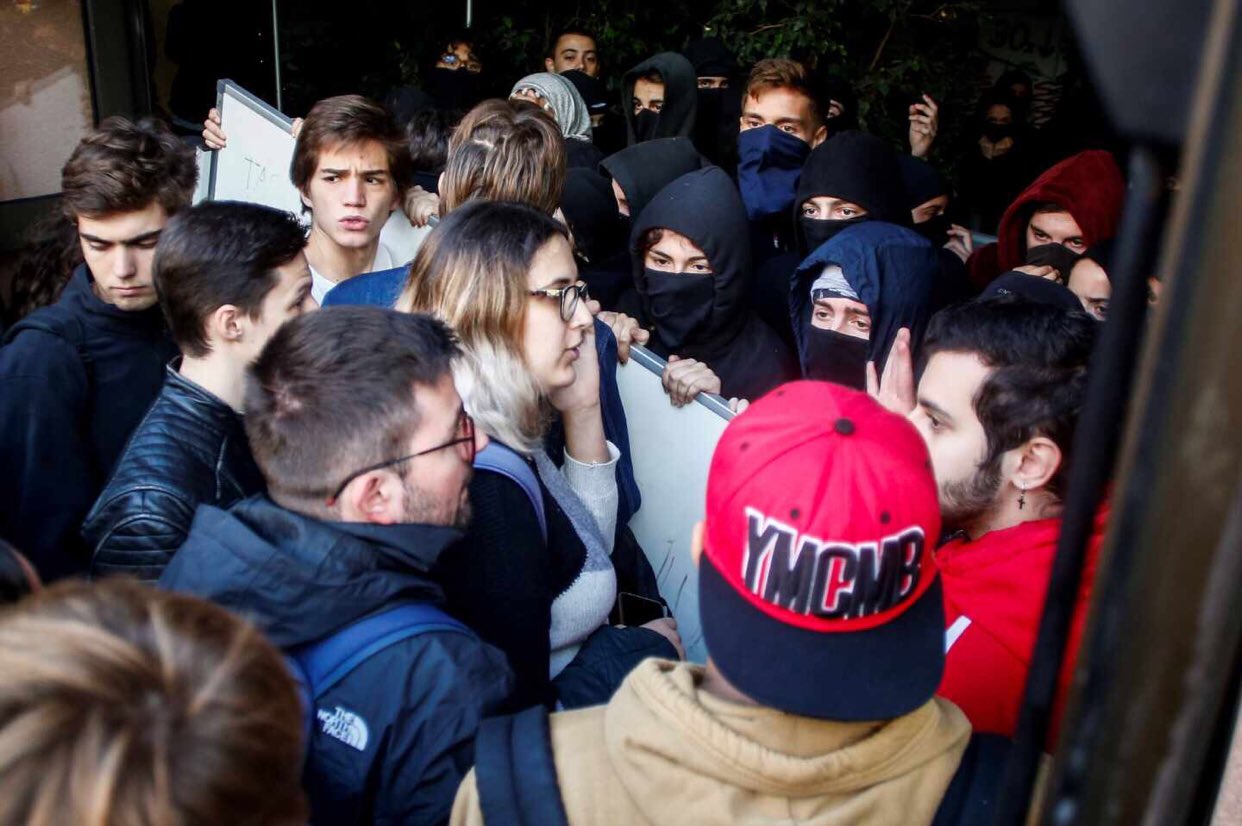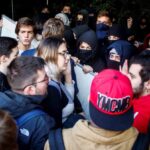The Universitat Autònoma de Barcelona (UAB) became the epicenter of a new socio-political clash in Spain on October 16, 2025, centered on the figure of the activist and self-proclaimed “journalist” Vito Quiles. The event, promoted by the constitutionalist student association S’ha Acabat!, was part of Quiles’ tour titled «España Combativa» (Combative Spain), an initiative the activist himself linked to the figure of Charlie Kirk in the United States to “champion freedom where it is most threatened.”
The Authorization Conflict and Censorship Claim
The controversy ignited days prior. The S’ha Acabat! association claimed to have requested the relevant permits for a talk or event with Quiles on campus. However, the UAB, through its rectorate, issued a statement denying that a formal request for a public event had been received. The university stated that, by not following the “mandatory and binding procedure,” the event was unauthorized.
Quiles and S’ha Acabat! interpreted the refusal as an attempt at censorship and a “clear violation of the right to freedom of expression,” claiming the university sought to intimidate activists with conservative or constitutionalist ideologies. For its part, the UAB later labeled Quiles’ attitude as “irresponsible” for calling people from outside the university community to an unauthorized event, denouncing the “instrumentalization of its campus.”
The Campus Disturbances
Despite the lack of permission, Vito Quiles proceeded with the call. On the morning of October 16, the UAB campus turned into a scene of high tension and disturbances.
- Clashes and Boycott: Dozens of demonstrators, described by various media outlets as left-wing and nationalist/separatist students, gathered to boycott the event. These groups chanted slogans like “Out Fascists from the university!” and stated that, while they favored diversity of opinion, an ideology that did not respect human rights could not be given a platform.
- Violence and Police Charges: The confrontation between the event’s detractors and the followers of Quiles and S’ha Acabat! quickly escalated. The throwing of objects such as eggs, tomatoes, and other items was reported. The situation required the intervention of the anti-riot officers of the Mossos d’Esquadra (the Catalan police), who had to carry out police charges and use their batons to separate the opposing groups.
- The “Cat and Mouse Game”: Vito Quiles, in a move some called provocative, did not appear at the main concentration spot (Plaza Cívica) where the major disturbances were expected. Instead, he moved to a secondary location, near the Faculty of Veterinary Medicine, about 500 meters away, to briefly proclaim his speech.
- Expulsion from Campus: Finally, due to the chaos and disturbances, the UAB requested a police presence. Following a “long and intense negotiation process,” the Mossos instructed Quiles that he must leave the campus to avoid a larger public order problem, which he eventually did.
The incident has reignited the debate in Spain about the limits of freedom of expression in university spaces, ideological tolerance, and the role of public universities in the face of unauthorized and controversial political acts.
II. Current Affairs in Spain in October 2025: A Scenario of High Tension
Beyond university campuses, the Spanish political scene in October 2025 is characterized by a persistent atmosphere of tension, polarization, and the management of significant political and judicial crises.
Judicial and Political Crisis: The Ábalos Case and Corruption
One of the main focuses of media and parliamentary attention is the evolution of the so-called “Koldo Case” and the situation of the former minister and former PSOE deputy, José Luis Ábalos.
- Parliamentary Suspension: The Congress of Deputies has proceeded to suspend Ábalos from his parliamentary rights and obligations (including salary and voting rights), a significant decision underscoring the seriousness of the accusations related to alleged corruption in the purchase of masks during the pandemic.
- Judicial Decisions: Judicial rulings have set the pace. The Supreme Court has refused to modify the precautionary measures imposed on Ábalos (passport withdrawal, prohibition from leaving Spain, and periodic appearances), rejecting the request for preventive prison sought by some popular prosecutions.
- Investigative Commissions: The case continues to be a political weapon between the Government and the opposition. Key figures, including the Prime Minister, Pedro Sánchez, are expected to appear before the Koldo Case commission in the Senate, where the Popular Party (PP) holds an absolute majority.
- Ayuso’s Partner and Begoña Gómez: Other judicial fronts fueling the political confrontation include the extended investigation into Begoña Gómez, wife of Prime Minister Sánchez, and the accusations related to the partner of the President of the Community of Madrid, Isabel Díaz Ayuso.
Political Debate and Polls
The confrontation between the coalition Government (PSOE and Sumar) and the opposition (PP and Vox) continues to dominate the landscape.
- Voting Intention: Recent polls (such as the October CIS) suggest an advantage in voting intention for the PSOE, placing it at a significant distance from the PP.
- Leadership and Ratings: The rating of political leaders is generally low. Pedro Sánchez (PSOE) and Yolanda Díaz (Sumar) obtain the highest scores among the main leaders, while Alberto Núñez Feijóo (PP) and, especially, Santiago Abascal (Vox) have the lowest ratings.
- Migration and Ideology: Issues such as migration remain central to the debate, with the PP presenting a plan that the Government has called “xenophobic.” This underscores the growing ideological polarization, also evident in the tense face-off between Sánchez and Feijóo in Congress, where accusations of “indecency” and corruption are exchanged.
Foreign Policy and International Conflicts
Spain’s position on the international stage and global conflicts also shape the agenda.
- Gaza Conflict: The Israeli-Palestinian conflict generates internal divisions. The Government has announced a reinforcement of its political and financial support for the Palestinian Authority. However, the left-wing component of the Government, particularly Sumar, has announced support for a Gaza strike and has been absent from plenary sessions, urging Spain to sever military, economic, and cultural ties with Israel, in a clear gesture of internal dissent.
Overall, October 2025 in Spain is a month that encapsulates the fragility of political dialogue, the centrality of corruption scandals in partisan struggle, and a notable difficulty in separating political activism (such as Quiles’ at the UAB) from institutional and academic structures.



